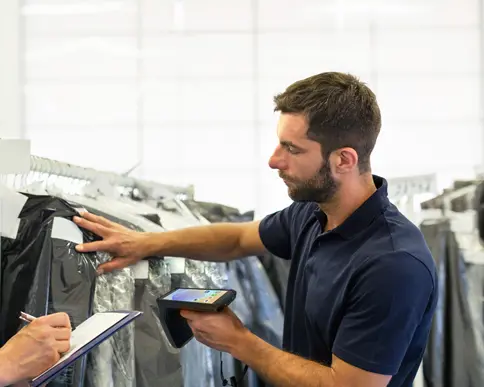Brief Introduction
In the modern retail market, product anti-counterfeiting and traceability are highly valued. In order to protect consumer rights and curb the circulation of counterfeit and inferior goods, retail stores urgently need an effective solution. RFID technology, as an efficient and accurate automatic identification technology, is gradually becoming an important tool for anti-counterfeiting and traceability in retail stores.

RFID readers, as the core equipment of RFID systems, play a crucial role. It can not only read and write data on RFID tags, but also achieve real-time monitoring and management of products in retail stores. Through RFID readers, retail stores can more accurately track the flow of products, ensuring the authenticity and compliance of products in the supply chain.
A high degree of automation is a major advantage of RFID readers. In traditional anti-counterfeiting and traceability methods, manual operations have many uncertainties and loopholes, which are prone to errors and omissions. RFID readers, through radio frequency technology and automated processing, can quickly and accurately read and write a large amount of product information. This not only improves work efficiency, but also effectively prevents information errors caused by human factors.
RFID readers also have high flexibility and scalability. It can seamlessly integrate with existing POS systems, supply chain management systems, etc., achieving information-based management of the entire retail store process. At the same time, RFID readers support multiple communication interfaces and can work with different types of devices to meet the personalized needs of retail stores.
In addition to its applications in anti-counterfeiting and traceability, RFID readers have broad commercial potential. By combining with smart tags, retail stores can achieve intelligent product positioning, inventory management, and promotional activities. This will undoubtedly bring higher profitability and competitiveness to retail stores, improving consumer experience and satisfaction.- The Critical Role of Mobile Computers in Warehouse Logistics2025-06-25
- Seuic Mobile Computers: Multi-Scenario Efficiency Solutions2025-06-24
- Operation Guide and Industry Applications of Seuic Mobile Computers2025-06-23
- How to Choose Mobile Computers for Your Industry Needs2025-06-20
- Mobile Computers: The All-in-One Tool from Data Collection to Industry Implementation2025-06-19